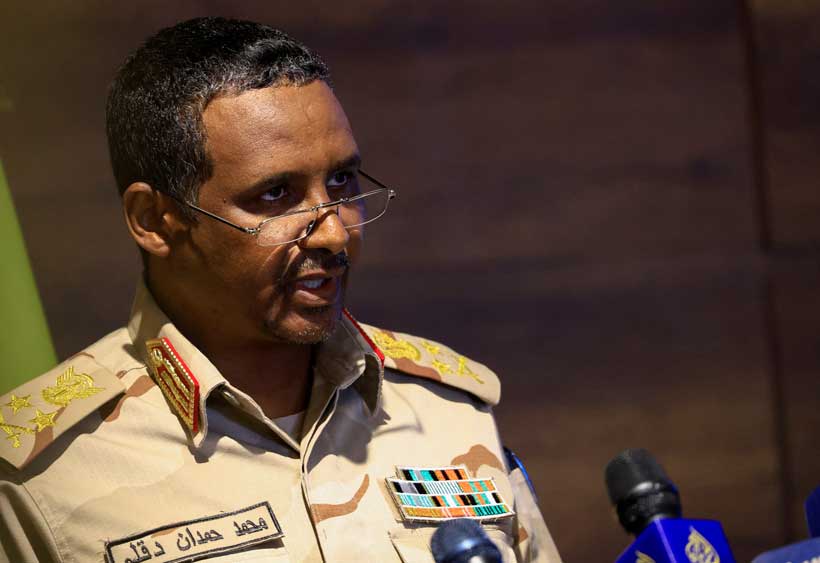As the world’s pontificators and peacemakers gather over the coming months in their various forums—be those the UN General Assembly or the backrooms of Europe and the United States—to discuss the world’s worst conflict-driven humanitarian crisis, Sudan, they would do well to think hard about what they are really hoping to achieve. A quick peace, or an enduring settlement?
To do that, they will need to peel away the almost cartoon-like representations that have come to dominate media imagery and international perceptions of what this conflict is about, and seek a better understanding of the historical tensions within the Sudanese state, and of the competing visions for how it should be governed—if it is not to be further divided.
A recent analysis by Daniel J Deng, published by the Konrad Adenauer Foundation, would be a useful place to start. Deng, an East Africa and South Sudan peace-building specialist, argues that the war is not merely a quest for military dominance but is, significantly, a “war of visions” over the future architecture of the Sudanese state.
Deng sees the Rapid Support forces, led by Mohammed Hamdan Dagalo (“Hemedti”), as a product of both the collapse of centralized governance and, potentially, as a catalyst for more inclusive, decentralized national reconstruction—the ‘New Sudan’. The Sudanese Armed Forces under General Abdel Fattah al-Burhan, is cast as the contemporary custodian of Sudan’s long-standing centralist, military-Islamic order.
That vision of a ’New Sudan’ was the life’s work of John Garang, rebel leader and, briefly before his death in a helicopter crash in 2005, first vice president of Sudan and president of the South Sudan Autonomous Region. Garang articulated a Sudan centred on pluralism, federalism, and inclusive governance, in which he “imagined a pluralistic, democratic Sudan anchored in inclusive governance, ethnic equality, and political secularism,” transcending both northern and southern regional chauvinism.
This vision was central to the Comprehensive Peace Agreement signed between North and South in 2005, but with Garang’s death, the Islamist-dominated Bashir regime in Khartoum let it drift, leading to South Sudan’s secession in 2011. And, it can be argued, Hemedti, whether by conviction or design, is the inheritor of that vision. Certainly in his rhetoric, he appears to have adopted its central tenets and made them central to the vision that lies behind his political coalition, Tasis, and the ‘government of peace and unity’ it has set up in Nyala.
After Omar al-Bashir fell in 2019, the RSF sought to transform its image from a militia rooted in state repression to “a political actor speaking on behalf of Sudan’s neglected peripheries.” Hemedti’s own rhetoric is purposefully populist and ‘Africanist,’ explicitly distancing the RSF from the legacy of Khartoum’s “Islamist deep state”. He has called for “an end to discrimination, equal citizenship, and the rights of all Sudanese, regardless of region or ethnicity.” And in April 2023, as tensions between himself and General Burhan were about to boil over into war, he said: “We want a Sudan that belongs to all Sudanese, not just a select group… a Sudan where every citizen, from Darfur to Kassala, is treated with dignity and equality.”
According to Deng, Hemedti frames himself as “a man of the people, not one of the elites who live in glass towers.” He refers to his roots in Darfur and deep-rural Sudan, and his life as a camel driver—a far cry from Sudan’s tradition of urban, Nile-side Islamist elite dominance. Moreover, the alliances he has forged with the Sudan People’s Liberation Movement-North (SPLM-N, particularly the al-Hilu faction) and the Justice and Equality Movement (JEM), suggest a leader who understands that Sudan’s future governance must of necessity be decentralised to reflect the aspirations of its diverse ethnicities.
In contrast, Burhan and the SAF represent the “traditional centralist, military-Islamist dominated model of government”. After the 2021 coup which ousted civilian prime ministerAbdalla Hamdok, Burhan “sought to reintroduce Islamist figures into state structures, consolidating SAF’s traditional base and reactivating elements of the National Congress Party’s old guard.” In Deng’s view, this effort simply “reinforces a statist governance model misaligned with Sudan’s emerging decentralized realities” and represents a direct continuation of the old order, “domination by centre or clique”, instead of plural citizenship and regional equity.
And that’s pretty much where the Juba Peace Agreement of 2020 fell down: implementation was top-down and elite-centric: “The JPA institutionalized parallel sovereignties… Rather than demobilizing insurgents into a unified national force, the JPA institutionalized parallel sovereignties.” These were the same design flaws that led to the collapse, in South Sudan, of its own internal peace process in 2016. Both failures—that of South Sudan, and of Juba in Sudan and the subsequent coup, underline the perils of centralist bargains unmoored from grassroots legitimacy, writes Deng. “By replacing institutional pluralism with top-down military rule, the post-2019 transition drifted into warlord competition masked as governance.”
At no point does Deng attempt to downplay the RSF’s part in the conflict, but he makes clear that Sudan’s future depends on ‘moving beyond binary paradigms of unity versus secession’and reconstructing a governance model that is neither rigidly centralist nor hopelessly fragmented, but layered, decentralized, and rooted in local legitimacy—an outcome that, on the face of it, is more closely aligned with Hemedti’s public posture than Burhan’s.
And here’s where the pontificators and peacemakers need to pay attention. There is no Nobel Prize-gaming quick fix. Peace in Sudan, and the viability of a future state, will depend on the old Islamist-centralist-elitist-militarist model giving way—through committed, sustained peace and institution building—to a new model of inclusion and distributed power, anchored in accountable, civilian-led, and grassroots-rooted governance. It’s either that or suffering Sudan goes back to Square One.
